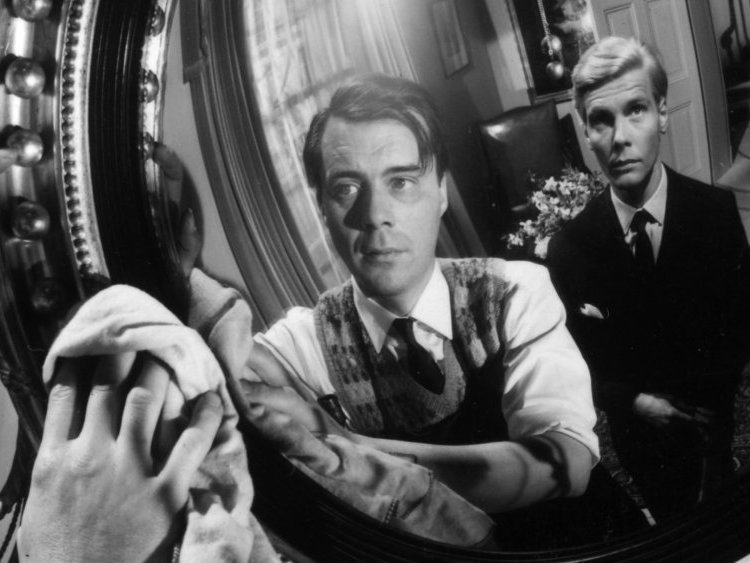
The Servant explores the inherent tensions of the English class system through the power dynamics between a wealthy londener and his mysterious butler. Gradually, the butler starts pulling the strings as he gains control over his employer. Imprisoned in his own house, the master becomes the slave.
EN
“For me the film is only a film about servility, the servility of our society, servility of the master, servility of the servant and servility in the attitude of all sorts of people in different classes and positions [...] It is a society of fear, and the reaction in the face of fear is in the majority of cases not resistance and combat, but servility, and servility is a state of mind.”
Joseph Losey1
“In the second place, this originary violence, this violence of the impulse gradually penetrates a given milieu, a derived milieu, which it literally exhausts in a long process of degradation. Losey in this respect has a predilection for a ‘Victorian’ milieu, a Victorian city or house, where the drama takes place, and where the staircases assume a fundamental importance, inasmuch as they delineate a line of the steepest slope. The impulse scours the milieu, knowing no satisfaction other than that of taking possession of that which seems to be closed to it, to belong by rights to another milieu, to a higher level. Hence perversion in Losey, which consists both in this propagation of degradation and in the election or choice of the ‘fragment’ which is the most difficult to attain. The Servant illustrates this investment of the master and the house by the servant.”
Gilles Deleuze2
"True, politics is plainly at work here; so, too, are good and evil. But the film cannot be explained by politics alone, nor simply as a morality tale - if such tales can ever be termed simple. Rather, it tells the story of a collapse, both personal and societal, in which false values, the politics of class, the vagaries of desire, and the power of uncertain sexuality claim equal places in a world suffused with hypocrisy. In its tale of a destruction that seems both eccentric and inevitable, The Servant joins themes and character in a fashion that marks a significant step for Losey in his journey from the relative simplicity of social commitment to sensitivity to the dilemmas of individual characters in a complex social and moral world."
James Palmer and Michael Riley3

